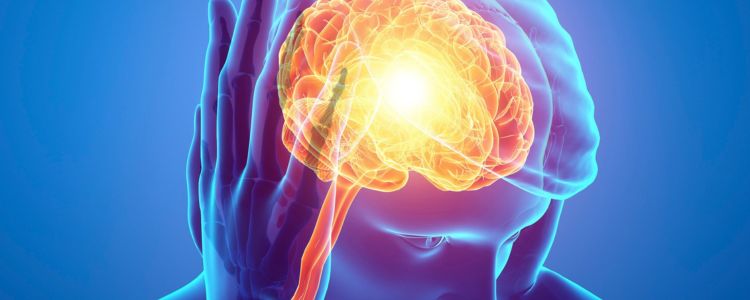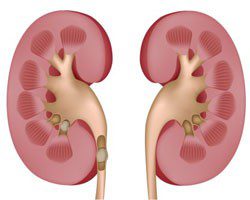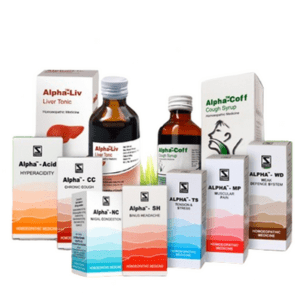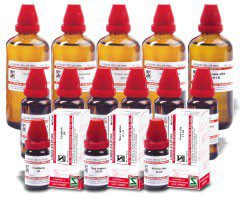
Anemia And Heart Health: The Surprising Connection
- Dr. Aditi Sharma
- No Comments

Anemia is a medical condition in which the body does not have adequate haemoglobin or red blood cells (RBCs) which reduces oxygen carrying capacity of the blood. The reduced blood oxygen level in anemia forces the heart to raise cardiac output. This increased workload results in various issues, particularly in people with preexisting cardiovascular disease. This article will throw light on surprising connection between anemia and heart health and how to manage anemia and boost cardiovascular system.
Table of Contents
ToggleWhat are the signs and symptoms of anemia?
Common anemic signs and symptoms are:
- Fatigue
- Pale or yellowish skin
- Shortness of breath
- Dizziness
- Cold hands and feet
- Fast or irregular heartbeat
- Headaches
- Chest pain
- Cognitive problems such as difficulty concentrating or thinking clearly.
- Pica – Craving items like dirt
- Inflamed tongue.
- Brittle nails
- Hair loss
- Restless legs syndrome
- Numbness or tingling in extremities
What are the common anemia risk factors and causes?
According to the World Health Organization (WHO) anemia prevalence globally is quiet high especially among women of reproductive age, children below 5years of age and people living in low- and middle-income countries.
Common anemia causes are: –
1. Blood loss which decreases the RBC count.
Causes include:
- Heavy menstrual periods
- Gastrointestinal bleeding
- Surgery or trauma
- Frequent blood donations
- Use of NSAIDs like ibuprofen or aspirin, which can cause stomach bleeding
2. Faulty RBC production.
Causes include:
- Iron deficiency
- Vitamin B12 or folate deficiency
- Anemia of chronic diseases like kidney disease, or inflammatory conditions.
- Bone marrow disorders
- Thyroid disorders
- Lead poisoning
- Genetic conditions – e.g., thalassemia, sickle cell anemia
3. Hemolysis or increased RBC destruction faster than they are manufactured in the body.
Causes include:
- Hemolytic anemias
- Autoimmune diseases
- Inherited conditions
- Infections
- Certain medications such as some antibiotics or anti-malarial drugs
- Toxins from chemicals or snake bites
Also Read Top 10 Supplements For A Healthy Heart
How Anemia affects the heart?
Anemia has a profound effect on heart health especially in people with high cardiovascular risk. In fact, according to anemia research findings anemia is one of the common risk factors for heart diseases. Anemia relation heart diseases are: –
- Tachycardia or increased heart rate.
- Cardiomegaly or heart enlargement due to prolonged strain.
- Chronic heart failure as the heart becomes unable to pump blood effectively.
- Angina or increased risk of chest pain.
- Arrhythmias or irregular heartbeats due to oxygen deprivation.
- In people with existing cardiovascular conditions anemia can deteriorate myocardial ischemia or impaired blood flow to the heart even in the absence of a full blockage.
What are the complications of Anemia?
Anemia complications are: –
- Heart-related complications as mentioned above
- Severe Fatigue and Weakness
- Anemia in pregnancy can result in complications such as: –
- Premature birth and low birth weight.
- Postpartum depression
- Weakened Immunity
- Cognitive and developmental Issues (in children)
- In some cases, severe organ damage especially kidney and liver problems may occur.
- Anemia and stroke are independently associated especially in elderly people and those who have cardiovascular risk factors.
What are the steps for anemia prevention and how to protect heart health?
These are: –
- Identify and treat the underlying cause especially in cases of anemia of chronic diseases.
- Have an iron -rich and heart-Healthy diet which includes: –
- Iron-rich items: Fish, lean meats, spinach, beans, lentils, tofu, fortified cereals etc.
- Vitamin C rich items: Citrus fruits, bell peppers, tomatoes etc.
- B12 & Folate Sources: Eggs, dairy, fish, whole grains, leafy greens, etc.
- Avoid processed foods and high sugar items to prevent added strain on the heart.
- Monitor and avoid cardiac strain
- Avoid overexertion
- Drink plenty of water
- Control blood pressure and blood cholesterol
- Exercise regularly as exercise and heart health are closely related.
- Regular medical checkups
- To monitor hemoglobin and iron levels
- To check cardiac function
Also Read 6 Ways to Protect Your Heart’s Health!
What are the diagnostic tools for anemia?
Tools for anemia diagnosis are: –
- The basic test is the blood test called Complete Blood Count (CBC). It measures parameters such as hemoglobin, hematocrit or the percentage of RBCs in the blood, RBC count, RDW for variation in RBC size etc
Based on CBC further tests for anemia are: –
- Iron studies: Serum iron, ferritin, TIBC
- Vitamin B12 and folate levels
- Reticulocyte count
- Peripheral blood smear
- Stool test for occult blood
- Bone marrow biopsy
What Is The Role Of Homeopathy In Anemia And Heart Health?
Homeopathy has a significant role to play in anemia treatment for improving heart health. Homeopathic medicines improve the metabolism of the body and help in better absorption of nutrient such as iron, and vitamins which are important for production of hemoglobin in the body. Well selected constitutional homeopathic medicine acts on the heart and strengthen cardiac function. In cases of anemia due to chronic disease homeopathic medicine helps to correct the underlying cause and stimulates the bone marrow to enhance the production of red blood cells. In cases of deep pathology such as sickle cell anemia or aplastic anemia homeopathic medicine acts along with conventional system of medicine for better treatment outcome.
Conclusion
Anemia is a medical condition in which the body does not have adequate haemoglobin or red blood cells (RBCs). Anemic causes fatigue, pallor, shortness of breath, dizziness, cold hands and feet, cognitive problems, abnormal cravings, brittle nails, hair loss and Restless legs syndrome. Anemia is caused by excessive blood loss, faulty RBC production and hemolysis. If not treated anemia can lead to complications such as severe fatigue, weak immunity and cognitive and developmental issues in children. Anemia if prolonged can even adversely affect heart health. It causes cardiac complications such as cardiomegaly, tachycardia, angina and even chronic heart failure. Tips to prevent and manage anemia include consuming food rich in iron, vitamin b12, folate and vitamin C. For treatment homeopathy has a significant role to play in anemia treatment and boosting heart health.





























